Common Orthodontic Issues – Richardson, TX
Fixing Problems to Bolster Your Smile
Dr. Tamara Jones is proud to serve Richardson as a skilled orthodontist. The treatments she provides are able to address a wide range of oral health issues and help patients enjoy a multitude of benefits. But you may be wondering specifically which orthodontic issues she can help with. On this page, we discuss common problems that Dr. Jones, Dr. Amerson, and our team of professionals can address.
While many people view these issues as being purely aesthetic in nature, they can also have dire consequences for an individual’s oral health and function. For example, they may contribute to tooth decay, difficulty chewing, speed impediments, and more. If you are suffering from any of the following problems, contact us today to schedule a consultation with Dr. Jones and Dr. Amerson. After she carefully examines your teeth and jaw, she will recommend a treatment plan to help you reach your goal of having a healthy, beautiful smile. She is proud to be able to offer complete orthodontic care to both children and adults.
Underbite
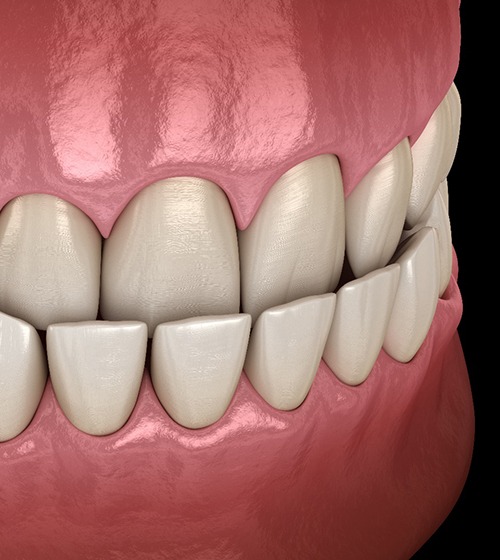
If your lower jaw extends beyond your upper jaw, causing your bottom teeth to sit in front of your upper teeth when your mouth is closed, you have what is known as an underbite. This can seriously affect facial aesthetics (causing a protruding chin) and hinder your ability to properly chew food.
Overbite
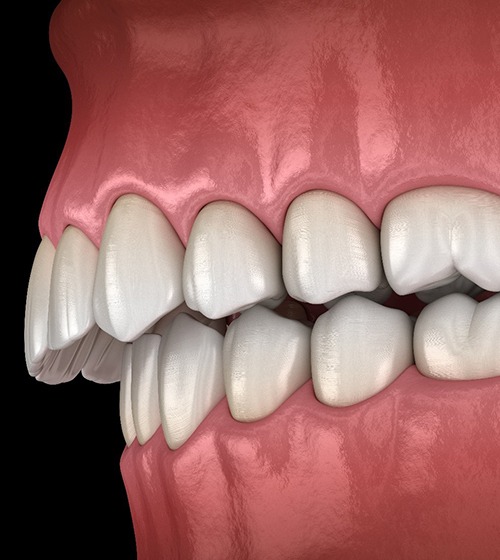
Normally, the upper teeth should rest in front of the lower teeth when your mouth is closed. However, if the upper teeth sit too far forward, this is known as an overbite. An overbite can cause premature wear and tear and your dental enamel. The lower teeth may also bite into the roof of the mouth, leading to discomfort and soreness in the soft tissue there.
Generally Crooked Teeth
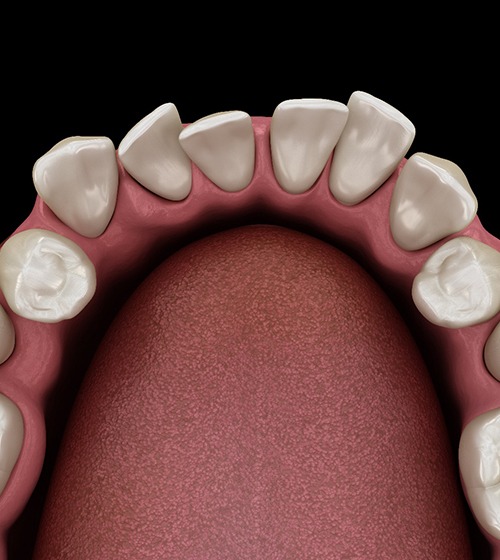
Some people have one or more teeth that are rotated or tilted. Not only can this cause aesthetic issues, but it can lead to dental malocclusion. There are many different reasons why the top or bottom teeth can grow crooked. For instance, maybe you’ve had misaligned teeth since childhood because of genetics, trauma, or your mouth is simply too small.
Open Bite
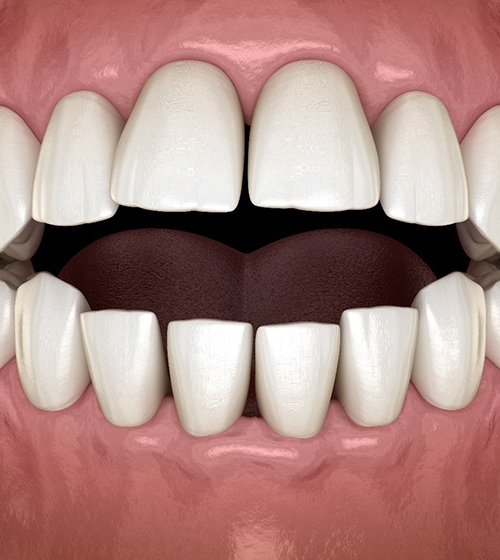
An open bite is a problem wherein the lower and upper front teeth do not make contact even when the back teeth are clenched. This issue is often caused by excessive thumb or finger sucking during childhood, and it can lead to speech and chewing challenges.
Impacted Teeth
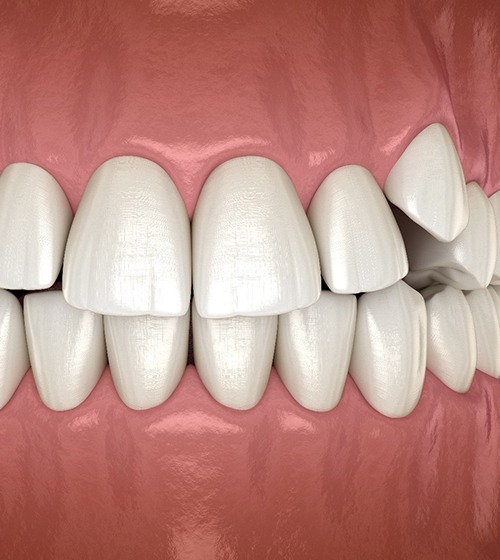
Are your teeth unable to pass through the gumline to grow into the proper position on their own? You may have impacted teeth. These typically cause no obvious symptoms and are only discovered during a routine X-ray at your checkup. It’s important to address impacted teeth right away to prevent complications from developing in the future.
Overcrowded Teeth

Some individuals develop more teeth than the average person, and others have teeth that are overcrowded due to developmental problems in the jaw. In either case, overcrowding is a significant problem because crowded teeth are more likely to break, trap food and bacteria between them, and suffer from cavities. They can also affect occlusion (bite) and place excess strain on your jaw joint.
Gaps Between Teeth
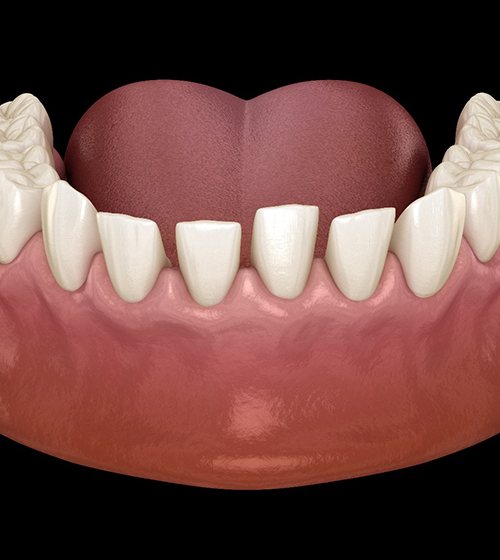
Small teeth, missing teeth, or an overly wide dental arch can cause there to be too much space between the teeth. This can lead to gum irritation and chewing difficulties. It can also have a significant effect on your smile’s aesthetics.
Crossbite
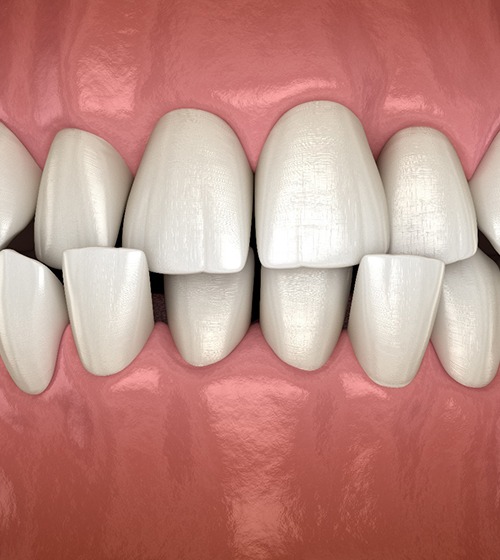
A crossbite is when one or more of the upper teeth rests behind the lower teeth. This issue can hinder proper jaw development and function. Crossbite may occur on one side of the mouth or both sides.
Excessive Overjet
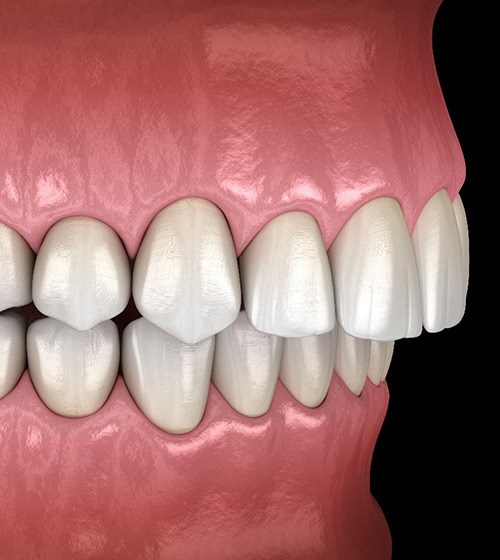
An excessive overjet occurs when the top front teeth stick out past the bottom teeth, leaving a gap between the top and bottom rows of teeth. This can cause the top teeth to appear larger and more noticeable than your other teeth. Some people may unkindly call this type of malocclusion a “bad bite”.
Orthodontic Extractions
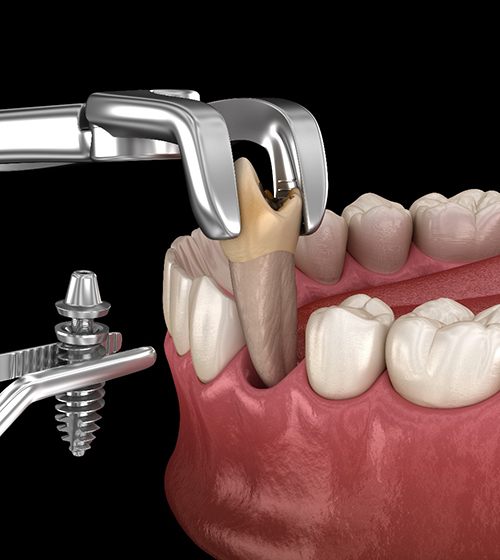
For some orthodontic cases, tooth extraction is necessary to achieve the best results. Don’t worry – we’ll consider all options for a healthy smile before recommending an extraction. It’s only done if it’s the best choice for your oral health.

